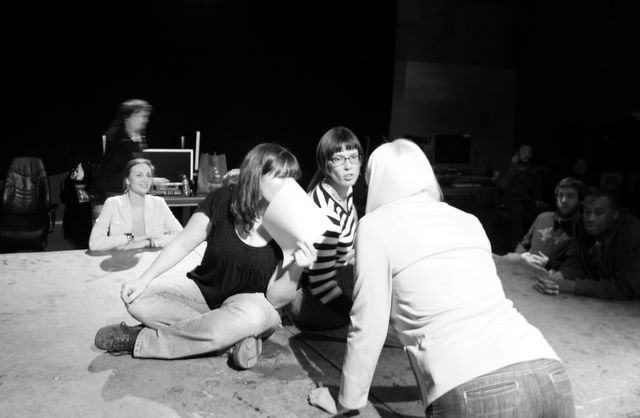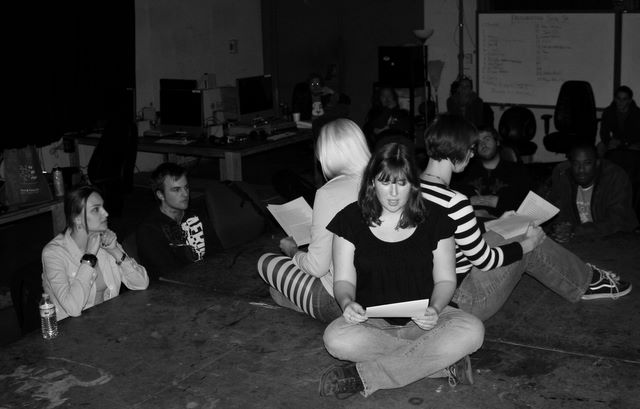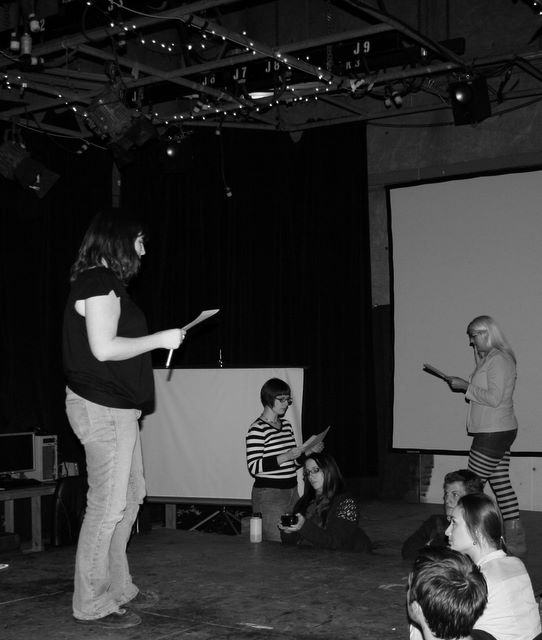death
I knew I wanted to look at death in literature for my first project long before the class ever met. It struck me while I was in Africa on the tro tro; novels and memoirs began popping into my head, so I wrangled pencil and paper from my bag and began writing them down. I was thinking about memory and the ways in which we memorialize the dead via narrative. Then once we met as a class and began discussing the ways in which different cultures commemorate the dead, I realized that I had chosen passages, both fiction and non-fiction, written by people from many different walks of life. Had I more time the list would have been exhaustive, but as it were I ended up with three non-fiction accounts and three fiction, one from a twenty-something white American woman (me), one from a thirty-something white Australian woman, one from a forty-something African American woman, one from a thirty-something white American man, one from a forty-something white American woman who spent time in Africa growing up and whose story and description of death take place there, and one from a thirty-something Mexican-American woman. On the day of the presentation, I enlisted the help of two other students and we read the passages aloud in unison. We began on the table sitting back to back, but then moved around the room as we read. The result was a cacophony of voices set to music by Nick Cave and Warren Ellis. Please see passages, photos and audio track below.
Download MP3 audio track here
Sula by Toni Morrison
She looked around for a place to be. A small place. The closet? No, Too dark. The bathroom. It was both small and bright, and she wanted to be in a very small, very bright place. Small enough to contain her grief. Bright enough to throw into relief the dark things that cluttered her. Once inside, she sank to the tile floor next to the toilet. On her knees, her hand on the cold rim of the bathtub, she waited for something to happen…inside. There was stirring, a movement of mud and dead leaves. She thought of the women at chicken little’s funeral. The women who shrieked over the bier and at the lip of the open grave. What she had regarded since as unbecoming behavior seemed fitting to her now; they were screaming at the neck of God, his giant nape, the vast back-of-the-head that he had turned on them in death. But it seemed to her now that it was not a fist-shaking grief they were keening, but rather a simple obligation to say something, do something, feel something about the dead. They could not let that heart smashing event pass unrecorded, unidentified. It was poisonous, unnatural to let the dead go with a mere whimpering, a slight murmur, a rose bouquet of good taste. Good taste was out of place in the company of death, death itself was the essence of bad taste. And there must be much rage and saliva in its presence. The body must move and throw itself about, the eyes must roll, the hands should have no peace, and the throat should release all the yearning, despair, and outrage that accompany the stupidity of loss. “If I could be sure that I could stay here in this small white room with the dirty tile and water gurgling in the pipes and my head on the cool rim of this bathtub and never have to go out the door, I would be happy. If I could be certain that I never had to get up and flush the toilet, go in the kitchen, watch my children grow up and die…Hell aint things lasting forever. Hell is change.” Not only did men leave and children grow up and die, but even the misery didn’t last. One day she wouldn’t even have that. This very grief that had twisted her into a curve on the floor and flayed her would be gone.
Tracks by Robyn Davidson
And I thought I had done it. I believed I had generated a magic for myself that had nothing to do with coincidence, believed I was part of a strange and powerful sequence of events called fate and I was beyond the need for anything or anyone. And that night I received the most profound and cruel lesson of all. That death is sudden and final and comes from nowhere. It had waited for my moment of supreme complacency and then it had struck. Late that night Diggity took a poison bait. We were running low on dog food, and I was too lazy, too high to want to go and shoot her some game. So I rationed her. She woke me up sneaking sheepishly back into the swag. She licked my face profusely, snuffled her way under the covers, and snuggled as usual into my belly. Suddenly she slunk out again and began to vomit. My body went cold. She came back and licked my face again. She had eaten some dead animal but it didn’t smell rotten, so I repeated to myself that she couldn’t be poisoned. I forced myself to believe it, yet I knew it wasn’t true. She started wandering around retching violently and coming back to me for reassurance. She knew. She suddenly ran away to some black acacia bushes and turned to face me. She barked and howled at me and I knew she must be hallucinating, knew she was dying. Her two mirror eyes burnt an image into my brain that will not fade. She came over to me and put her head between my legs. Then she went crashing through the undergrowth barking like a mad dog. I raced for the gun, I loaded it and went back. She was on her side convulsing. I blew her brains out. I knelt frozen like that for along time then I staggered back to the swag and got in. My body shook with uncontrollable spasms. I vomited. Sweat soaked into the pillows and blankets. I thought I was dying too. I thought that when she licked me, I had swallowed some strychnine. I’ve never been able before or since to do what I did then. I shut my brain off and willed it into immediate unconsciousness. I woke well before dawn. I felt nothing. Then suddenly it was time to leave that place and I didn’t know what to do. I had a profound desire to bury the dog. I told myself it was ridiculous. It was natural and correct for the body to decay on the surface of the ground. But there was an overwhelming need in me to ritualize, to make real and tangible what had happened. I walked back to Diggity’s body, stared at it, and tried to make all of myself face what was there. I didn’t bury her. But I said goodbye to a creature I had loved unconditionally, without question. I said my goodbyes and my thank-yous and I wept for the first time and covered the body with a handful of fallen leaves. I walked out into the morning and felt nothing. I was numb, empty. All I knew was I mustn’t stop walking.
Love is a Mix Tape by Rob Sheffield
I was in the kitchen making lunch for Renee—cinnamon toast and coffee. Renee stood up, took a step, and then suddenly fell over onto the chair by her desk. I ran to her. I held her up with my arms and tried to talk to her. The coroner later told me that she died instantly, that pulmonary embolisms kill in less than a minute…I cleared a little space and sat on the floor between Renee’s purple desk and her bereau—where her body had been—in the fetal position, my knees up, holding the phone. I sat there alone for hours. I’m not sure how much time passed. I didn’t want to get up off the floor because I wanted to be there when Renee called and said she was coming home. The sun set and the house grew dark. The call from Richmond didn’t come. I have no idea how long I sat there. Her family was so kind to me, although I felt ashamed that their daughter had died on my watch. I knew I would have to relearn how to listen to music, and that some of the music we’d loved together I’d never be able to hear again. Sleep was the worst. I would lie in bed and my shins would ache, remembering how she used to kick them while she slept. Who knew shins had feelings, much less memories? I had no idea how to eat alone or sleep alone. I didn’t know how to cook alone, go out alone, listen to music alone, shop for groceries alone. The things we used to do together were alien now. Sometimes I opened her sweater drawer to breathe in traces of her scent. I knew every time I opened the drawer, more of her scent would get lost for good. Whenever I got near the edge of sleep, my heart would race and I’d bolt upright, hyperventilating. But it made no sense for me to get morbid over Renee; she was the least morbid person I knew. Tragic, gaunt people bored her. She liked noise, she liked people, and she especially liked noisy people. She had no interest in death at all, so I stopped going to the grave because it made me feel too far away from her. God knows she didn’t want to be there. I felt closer to her in Taco Bell—she loved the Chaco Taco as much as she hated cemeteries. When I started feeling morbid and empty, I felt like I was turning into a different person from the guy she fell in love with. I had no voice to talk with because she was my whole language. Without her to talk to, there was nothing to say. I missed all our stupid jokes, our secrets. Now we had a whole different language to learn, a new grammar of loss to conjugate: I lose, you lose, we lose; I have lost, you have lost, we have lost. Words I said out loud, every day, many times a day, for years and years—suddenly they were dust in my mouth.
"The Moths" by Helena Maria Viramontes
There comes a time when the sun is defiant. Just about the time when moods change, inevitable seasons of a day, transitions from one color to another, that hour or minute or second when the sun is finally defeated, finally sinks into the realization that it cannot with all its power to heal or burn, exist forever, there comes an illumination where the sun and earth meet, a final burst of burning red orange fury reminding us that although endings are inevitable, they are necessary for rebirths, and when that time came, just when I switched on the light in the kitchen to open Abuelita's can of soup, it was probably then that she died. The room smelled of Pine Sol and vomit and Abuelita had defecated the remains of her cancerous stomach. She had turned to the window and tried to speak, but her mouth remained open and speechless. I heard you, Abuelita, I said, stroking her cheek, I heard you. I opened the windows of the house and let the soup simmer and overboil on the stove. I turned the stove off and poured the soup down the sink. From the cabinet I got a tin basin, filled it with lukewarm water and carried it carefully to the room. I went to the linen closet and took out some modest bleached white towels. With the sacredness of a priest preparing his vestments, I unfolded the towels one by one on my shoulders. I removed the sheets and blankets from her bed and peeled off her thick flannel nightgown. I toweled her puzzled face, stretching out the wrinkles, removing the coils of her neck, toweled her shoulders and breasts. Then I changed the water. I returned to towel the creases of her stretch-marked stomach, her sporadic vaginal hairs, and her sagging thighs. I removed the lint from between her toes and noticed a mapped birthmark on the fold of her buttock. The scars on her back which were as thin as the life lines on the palms of her hands made me realize how little I really knew of Abuelita. I covered her with a thin blanket and went into the bathroom. I washed my hands, and turned on the tub faucets and watched the water pour into the tub with vitality and steam. When it was full, I turned off the water and undressed. Then, I went to get Abuelita. She was not as heavy as I thought and when I carried her in my arms, her body fell into a V, and yet my legs were tired, shaky, and I felt as if the distance between the bedroom and the bathroom was miles and years away. I stepped into the bathtub one leg first, then the other. I bent my knees slowly to descend into the water slowly so I wouldn’t scald her skin. There, there, Abuelita, I said, cradling her, smoothing her as we descended, I heard you. Her hair fell back and spread across the water like eagles’ wings. The water in the tub overflowed and poured onto the tile of the floor. Then the moths came. Small gray ones that came from her soul and out through her mouth fluttering to light, circling the single dull light bulb of the bathroom. Dying is lonely and I wanted to go where the moths were, stay with her and plant chayotes whose vines would crawl up her fingers and into the clouds; I wanted to rest my head on her chest with her stroking my hair, telling me about the moths that lay within the soul and slowly eat the spirit up; I wanted to return to the waters of the womb with her so that we would never be alone again. I removed a few strands of hair from Abuelita’s face and held her small light head within the hollow of my neck. The bathroom was filled with moths, and for the first time in a long time I cried, rocking us, crying for her, for me, the sobs emerging from the depths of anguish, the misery of feeling half-born, sobbing until finally the sobs rippled into circles and circles of sadness and relief. There, there, I said to Abuelita, rocking us gently, there, there.
The Poisonwood Bible by Barbara Kingsolver
Mother did not rant or tear her hair. She behaved as if someone else had already told her, before we got there. Silently she dressed, tied back her hair, and set herself to a succession of chores, beginning with tearing down the mosquito netting from all of our beds. With a dark scarf over her hair and the sleeves of her stained white blouse rolled up, she did her work as deliberately as the sun or moon, a heavenly body tracking its course through our house. Her tasks moved her continually away from us—her senseless shadows, a husband and living daughters. She went out to the kitchen house, fired the stove, warmed a pan of water, then carried it back into the house and set it on the big dining table where Nelson had laid the body on a bedsheet. Mother bathed Ruth May with a washcloth as if she were a baby. She rubbed carefully under the chin and in the folds at the backs of the elbows and knees. Mother spread a small soft hand onto hers and washed the fingers one at a time. She cradled and lifted the head to rinse it, taking care not to get soapy water in Ruth May’s eyes. As she dried the limp blonde hair with a towel, she leaned in close, inhaling the scent of my sister’s scalp. I felt invisible. By the force of my mother’s desire to conduct this ritual in private, she had caused me to disappear. After she dried and wrapped her baby in a towel she hummed quietly while combing out the tangles and plaiting the damp hair. Then she began to cut our mosquito netting into long sheets and stitch the layers together. Several women from the village had already come. Mama Mwanza arrived first, with her daughters. A few at a time, the others followed. They fell down at the edge of our yard when they came, and walked on their knees to the table. Suddenly one woman shrieked, and I felt my skull would split open. All the others immediately joined in with the quivering, high bilala. The trilling of our neighbors’ tongues set loose knives that cut the flesh from our bones and made us fall down with our shame and our love and our anger. We were all cut down together by the knife of our own hope, for if there is any single thing that everyone hopes for most dearly, it must be this: that the youngest outlive the oldest.
Jen M.
The water is lukewarm. The tears have ceased. She’s glad that the candle from the dollar store came wrapped in cheap plastic with the image of the virgin of Guadalupe. Otherwise, she would have already smashed the glass against the tile just to see where the pieces would land in the tub…just to see if any of them would cut her. But alas, the image is so lovely. So lovely.
At camp she tried to listen to the children’s hearts through a cardboard tube. Had the tubes actually worked as stethoscopes, which was their intended purpose, the kids would have heard something strange when they put their ears up to the cardboard over her heart. The sound of sinews threading themselves back and forth, back and forth, desperately trying to salvage the muscle…the chambers and doorways and little strings like on marionette puppets…the throbbing magic of it all. What the determined sinews did not know, however, was that the moment the last thread was pulled through and taut, the other side would begin to unravel. It’s just the nature of things in her heart.
She opened her eyes. The ceiling came into view at a slant. She winced. There was something about the victorian design that made her feel like she was in a prison, where stupidity and unbridled rage had landed her in solitary confinement. Were it not for the noises outside her window that reminded her of liberated life, the claustrophobia would have slimed its way around her neck and down the length of her body. Maybe it was the tint of yellow in the paint. Yellow denotes madness in Russian literature. The bows and the bells and the frill. It was sickening. She was unable to deny that feeling access into the room or into her thoughts. The incense stick she had burned earlier was a string of light brown ash desperately clinging to the window sill. Not having a burner, the incense jut out from the sill with a book holding its end, and the ash fell to the floor. Only this stick was refusing to let go. She had lit it in the morning and it had hung around all day, a row of miniature sausage links. She wondered when it would take the plunge.
She wished she could paint her walls bright green. She wished she would have known his favorite smell. She wished she would have pleaded louder or at least more convincingly to whomever it may have concerned. She would never forget the way his hand felt in hers, but she would inadvertently forget other things, the little, most important things. And all she really wanted was to feel the soft skin of his shaved arm upon her face.



